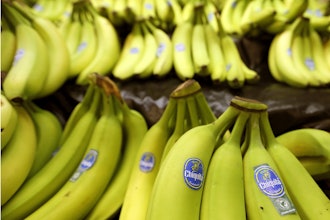PORTLAND, Maine (AP) — Fishing managers are considering extending new protections to Atlantic herring, but catch quotas for the important bait fish are still likely to plummet before the end of the year, which is bad news for the American lobster industry.
Herring is the most important bait source for the lobster fishery, which is one of the most lucrative marine industries in New England. A recent scientific assessment of the herring population says the fish's population has fallen in the past five years.
An arm of the Atlantic States Marine Fisheries Commission voted last month to initiate changes to try to better protect spawning herring off of New England.
The new protections are coming at a time when the lobster and herring fisheries are expecting a dramatic cutback in herring quota. The National Oceanic and Atmospheric Administration is expected to propose new rules about herring fishing this month and implement them by early 2019, when next year's herring fishing season starts.
Lobstermen in Maine, the biggest lobster-fishing state, are on edge waiting for the news, said Kristan Porter, president of the Maine Lobstermen's Association. The lack of herring caused by a quota cut will drive up the cost of bait and possibly make it harder to load traps at all.
"That's definitely going to be a huge cut," he said. "We obviously have to be looking at different sources of bait."
The impact of a bait crunch on lobster consumers remains to be seen, but it's possible a high cost of bait could be passed along to customers. It's also too early to say whether a bait shortage will result in less availability of lobsters, which have been in abundant supply at markets and restaurants for several years.
The Atlantic States' new protections of herring are designed to make it easier for the fish to spawn in the inshore Gulf of Maine, off Cape Cod and on Georges Bank, which are all important habitats for herring. The fish is the focus of efforts by conservationists because of its critical role in the ocean food web.
The NOAA announced during the summer that the herring catch limit would be cut back by more than 8 million pounds. That cut was "survivable and difficult," but the pending quota reduction has the potential to be much deeper, said Mary Beth Tooley, who works in government relations for the O'Hara Corporation, a herring harvester in Rockland, Maine.
"There will be a deep cut. I'm certain of that. How deep is a question, and we'll wait," she said.





















